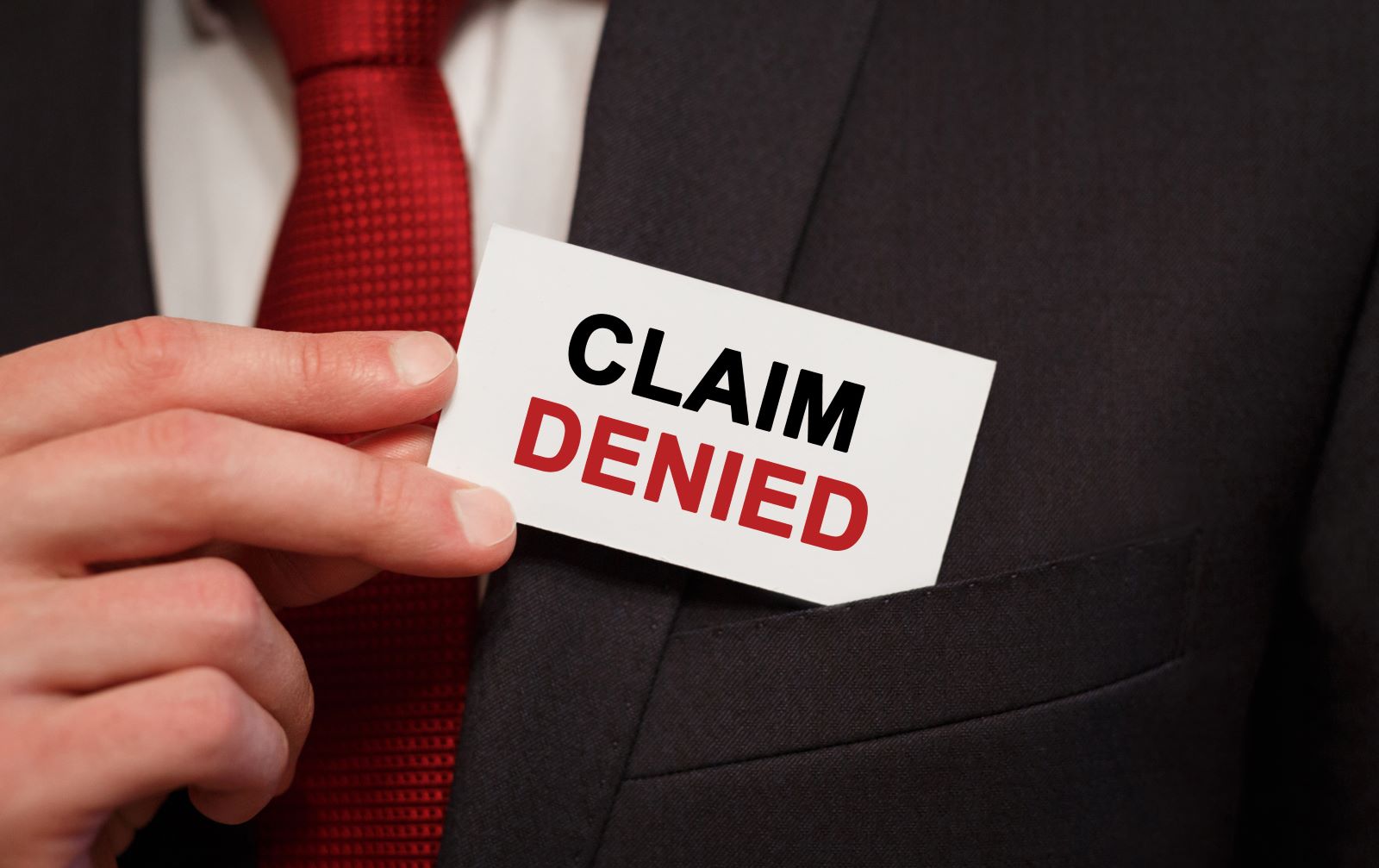Not telling the truth to your insurance company might seem like an easy way to cut costs, but it can backfire dramatically. The risks associated with dishonesty can be far greater than any short-term gains you might hope to achieve. Here’s why honesty is the best policy when dealing with your insurer:
1. Denied Claims

Image Credit: Shutterstock / Michail Petrov
Insurance companies have sophisticated methods for detecting inconsistencies in claims. If they catch a lie, they can deny your claim altogether. This means that even if you’ve been paying your premiums faithfully, a false statement can render your entire policy useless. Denied claims due to dishonesty not only mean losing out on financial help when you need it most but also potentially facing significant out-of-pocket expenses.
2. Policy Cancellation

Image Credit: Shutterstock / insta_photos
Discovering a lie on your application or claim can lead to immediate policy cancellation. Without insurance, you’re left vulnerable to financial risks and legal repercussions. Moreover, finding new coverage after a cancellation due to fraud can be difficult and expensive, as insurers may view you as a high-risk client.
3. Legal Consequences

Image Credit: Shutterstock / fizkes
Insurance fraud is not just a breach of contract; it’s a criminal offense. Being caught untruthful to your insurer can result in serious legal trouble, including hefty fines and even jail time. Legal battles can be costly and stressful, and a criminal record for insurance fraud can have long-lasting effects on your life.
4. Higher Premiums

Image Credit: Shutterstock / PanuShot
Even if your dishonesty isn’t discovered immediately, it will likely be uncovered eventually. Once it is, your premiums can skyrocket. Insurers adjust your rates based on your claims history and the accuracy of the information you provide. Misrepresentation can lead to a significant increase in your premiums, sometimes by as much as 50%, which can put a substantial strain on your finances.
5. Future Insurability

Image Credit: Shutterstock / jd8
A history of dishonesty with one insurer can make it challenging to secure coverage in the future. Insurance companies share information about fraudulent activities, and this record can follow you. As a result, you might face higher rates or outright denial from other insurers, limiting your options and increasing your costs.
6. Financial Loss

Image Credit: Shutterstock / Kmpzzz
If your claim is denied due to dishonesty, you will have to bear the full financial burden yourself. This can be particularly devastating in the event of major accidents or damages, leading to substantial out-of-pocket costs. For many, these expenses can be overwhelming and lead to financial hardship.
7. Loss of Legal Protection

Featured Image Credit: Shutterstock / Pressmaster
Not telling the truth on your insurance application or claim can forfeit essential legal protections. If you’re sued after an accident and your insurer discovers you didn’t tell the truth, they might refuse to defend you. This exposes you to legal action and potential financial penalties, as you must handle any lawsuits on your own.
8. Damaged Reputation

Image Credit: Shutterstock / Thx4Stock team
Being caught in a lie with your insurer can damage your reputation, both personally and professionally. Word of your dishonesty can spread, affecting your relationships and standing within your community. Employers and others who perform background checks might also view your involvement in insurance fraud negatively, impacting your career and personal life.
9. Increased Scrutiny

Image Credit: Shutterstock / BalanceFormCreative
Once your insurer catches you in a lie, they will scrutinize all future claims more rigorously. This heightened scrutiny can lead to delays in processing your claims and additional stress. The extra attention on your claims can cause frustration and may delay the help you need during difficult times.
10. Stress and Anxiety

Image Credit: Shutterstock / PeopleImages.com – Yuri A
Living with the knowledge that you’ve been dishonest with your insurer can cause significant stress and anxiety. The constant worry about being discovered and the potential repercussions can weigh heavily on you. By maintaining honesty, you ensure peace of mind and a more straightforward relationship with your insurer.
11. Ethical Considerations

Image Credit: Shutterstock / fizkes
Honesty is a fundamental ethical principle that extends to your dealings with insurers. Being truthful avoids the negative consequences of fraud and aligns with personal integrity. Acting ethically fosters trust and respect, which is crucial in all your interactions, including with your insurance company.
12. Impact on Family and Friends

Image Credit: Shutterstock / Grusho Anna
Your dishonesty can also affect those close to you. Financial loss or legal trouble resulting from your fraudulent actions can place a burden on your family and friends. They might need to provide financial support or deal with the stigma of being associated with someone who committed fraud.
13. Limited Coverage Options

Image Credit: Shutterstock / Korawat photo shoot
If your policy is canceled due to fraud, finding new coverage can be challenging. High-risk insurers that accept clients with a history of fraud often charge exorbitant rates. This can limit your options and result in higher overall costs, making it even more difficult to secure affordable insurance.
14. Loss of Discounts

Image Credit: Shutterstock / Inside Creative House
Many insurers offer discounts to honest, low-risk customers. Misrepresentation on your application or claim can result in losing these valuable discounts. Without them, you might see an increase in your premiums of up to 30%, adding to your financial burden.
15. Fraud Investigations

Image Credit: Shutterstock / Andrey_Popov
Insurance companies take suspected fraud seriously and conduct thorough investigations. This can involve private investigators, detailed interviews, and a deep dive into your claims history. These investigations are invasive and can lead to significant stress and embarrassment.
16. Compromised Claims for Legitimate Incidents

Image Credit: Shutterstock / NONGASIMO
A history of dishonesty can lead insurers to scrutinize even legitimate claims more closely. They may be less inclined to believe your claims, resulting in delays or denials of genuine incidents. This can prevent you from receiving the coverage you rightfully deserve.
17. Regulatory Penalties

Image Credit: Shutterstock / fizkes
Regulators impose strict penalties on those caught committing insurance fraud. These can include substantial fines, restitution payments, and mandatory education programs. The long-term effects of regulatory penalties can be severe and enduring.
18. Personal Accountability

Image Credit: Shutterstock / Ground Picture
Being honest with your insurer fosters personal accountability and responsibility. It ensures that you’re taking full responsibility for your actions and leads to better financial management and a more stable relationship with your insurance company.
The Bottom Line

Image Credit: Shutterstock / fizkes
Not telling your insurance company everything might seem like a quick fix, but the risks far outweigh any potential benefits. By being honest, you ensure you’re fully covered and avoid severe consequences. Remember, honesty is truly the best policy for dealing with insurers.
Police Magnet: 7 Cars That Guarantee You’ll Get Pulled Over

Image Credit: Shutterstock / sirtravelalot
Driving certain cars can make you more noticeable to law enforcement, even if you’re abiding by all the rules. Are you driving one of these “police magnets”? Here are seven cars that seem to attract more police attention than others. Police Magnet: 7 Cars That Guarantee You’ll Get Pulled Over
The Classic Cars That Were Total Clunkers

Image Credit: Pexels / Pixabay
Nostalgia has a funny way of making the past seem better than it was, especially when it comes to cars. But here’s the hard truth: some of those “classic” cars your dad raves about were real clunkers. Here’s a closer look at why some of those so-called “classics” weren’t all they were cracked up to be. The Classic Cars That Were Total Clunkers
The Worst U.S. Cars Ever Made: A Retro List

Image Credit: Pexels / Be The Observer
The U.S. auto industry has produced some incredible vehicles, but not every model was a hit. Here’s a look back at 16 of the worst cars ever made in the U.S., each infamous for its own unique flaws. The Worst U.S. Cars Ever Made: A Retro List
Featured Image Credit: Shutterstock / PeopleImages.com – Yuri A.
For transparency, this content was partly developed with AI assistance and carefully curated by an experienced editor to be informative and ensure accuracy.
The images used are for illustrative purposes only and may not represent the actual people or places mentioned in the article.



